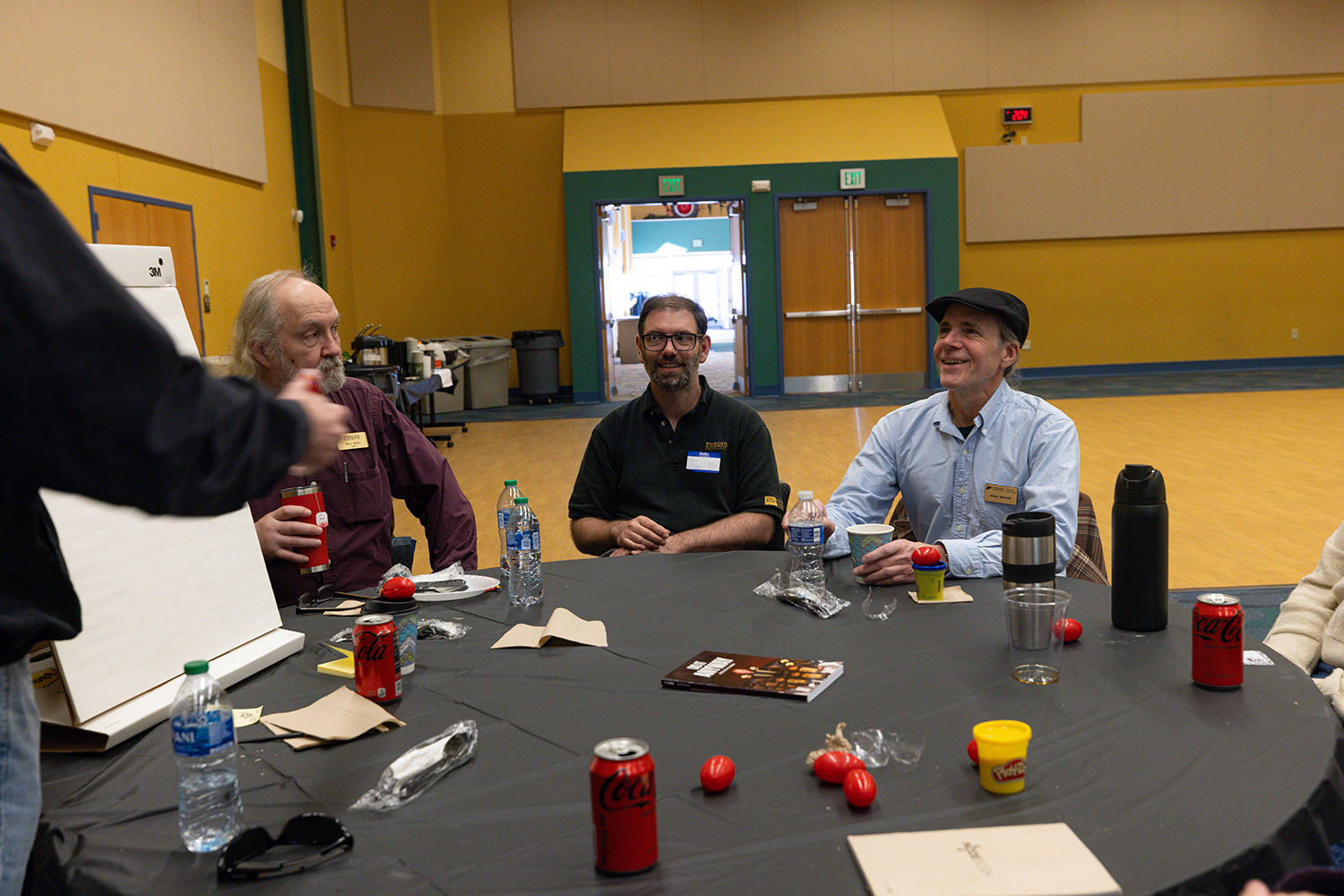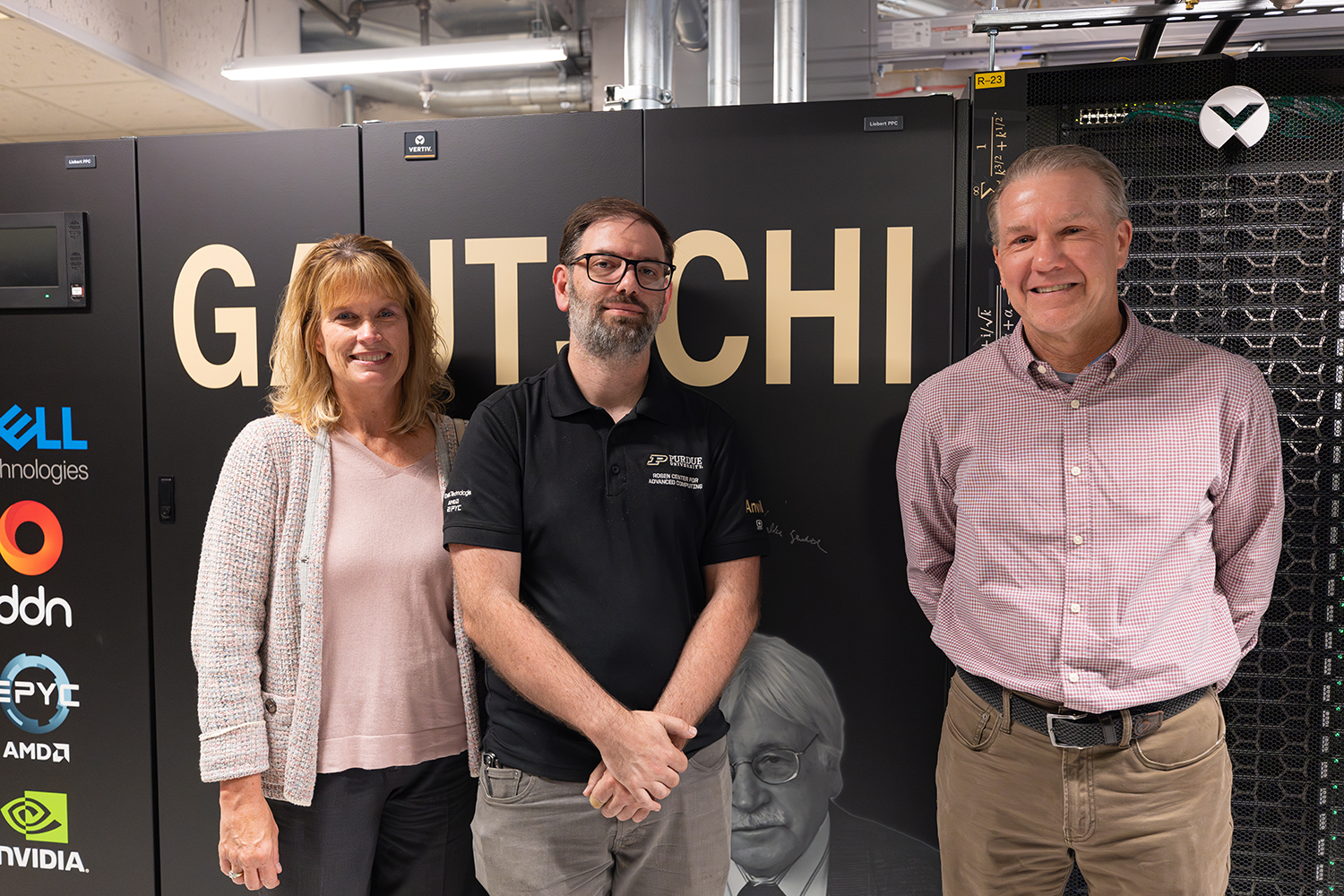News & Events
- There are no upcoming Student Events at this time.
Meet Your Mentor!
We sat down with our 2025 Anvil REU Mentors to discuss their role at RCAC, what their REU students will be working on, and much, much more. Keep reading below to learn more about your mentor.

Patrick Finnegan
Please introduce yourself
I’m Patrick Finnegan, I have been building HPC systems for Purdue for more than two decades. I started with the first centralized Linux clusters, mostly focusing on hardware integration, and next generation data centers.
What do you do?
I am the Lead Systems Engineer. I make sure that we are able to deploy next-generation cutting edge HPC systems to enable research at Purdue and beyond.
Why would I come to you for help?
I mostly focus on project management, and systems integration, but I am a generalist and can help with most any problem anywhere from Power and Plumbing, to Networking, Storage and beyond.
What’s one thing you wish you’d known when you started working in HPC?
I wish that I knew to trust my instincts, and not let people get in my way of getting things done.
What's one professional skill you're currently working on?
I'm always learning about the latest technology, so I can lead up and coming technical staff to do their best.
What's your go-to productivity trick?
Nothing helps me focus like an imminent deadline. My main trick is picking the highest priority fire, and working on that.
What behavior or personality trait do you most attribute your success to, and why?
I can focus on any problem, and break it down until I can find what I need to find for a solution. My ADHD helps me the most to hyper focus on the most critical problem.
What was your first job?
My first job as a student was a C++ developer in high school. my first full-time job was at RCAC.
What’s the worst job you’ve ever had, and what did you learn from it?
The worst job I've had was working for a terrible manager, who kept randomly chnaging priorities., who refused to focus the team on the real priorities.
What was your favorite job you’ve ever had and why?
While I worked for Data Centers, I was able to bridge gaps, and help accomplish what RCAC needed done. My manager at the time was very supportive, even if I had to bend or break a few guidelines to get things done correctly.
What led you to this career?
My journey to this career was shaped by my curiosity and love for solving problems. I realized my passion for computer science and decided to pursue it seriously.I looked through PUCC website, and saw all of the details about the supercomputers that were run at the time. I thought "Hey those would be neat to be able to touch." When I got the opportunity to ba student employee, I jumped at it, and I have been working at or for Research Computing ever since.
What are you currently excited about in your job?
New technology is fun, but I really enjoy being able to teach and work with up and coming technology talents.
What’s one thing that surprised you about working at Purdue/RCAC?
HPC has become almost pedestrian, far reaching beyond just scientific applications, to things including Political Sciences and Literature.
What’s a work-related accomplishment that you’re really proud of?
As a consulting job, I was 1/3 of a 3 person team that ran the HPC systems for DARPA's Cyber Grand Challenge, a $50M+ project in 2015-16, which had 7 teams competing to build AI systems that played "capture the flag" against each other, finding and defending security vulnerabilities.
What's the biggest misconception people have about your position?
The biggest misconception is that HPC systems are anything like Enterprise IT systems. As an HPC systems engineer, I have to understand the full stack from the hardware, networking, storage, down to the power and cooling and how they're different than enterprise systems.
How long have you been on the Anvil team/at RCAC?
I helped design, build, and deploy Anvil.
Education, publications, engagement (groups part of), etc...
Fun Fact:
I am a licensed Master Electrician, have DJed drag shows, and am a part of the small team that runs the biggest Vintage Computer Festival event in the world-VCF/Midwest.
Why did you decide to become a mentor for the REU program?
I think it is important to spread my knowledge to help guide the future of HPC.
What value does the REU program provide for students?
HPC is a career niche that isn't going away anytime soon, and can be both fun to work on, and has lots of potential careers opportunities that pay well.
-
What do you hope the REU gets out of the program?
I hope the REU gets to see what possibilites there are in HPC.
-
How can this help them in their college career?
College courses don't have the opportunity to work on niches like this.
Why HPC?
-
As an industry to work in
HPC is fun and pays well
-
As a use for research
Almost all research uses or can use HPC in some way
-
As an experience as an undergrad
Working on unique systems that no one else gets to touch is a lot of fun.
Why RCAC/Purdue?
-
As a place to work as a professional
RCAC does supercomputing like no other place does it, providing an exciting environment, that isn't mired in political or beaurocratic annoyances.
-
A place to get your education (e.g. grad school)
I'm not sure I'd recommend this. It's probably too much work for the value you get out of just a degree.
-
As a place to work as an undergrad
It's the only place you get to play with $10M+ computers.
Where do you see HPC/Supercomputing/Research Computing going in the next 10 years?
More and more people will use HPC.
-
Where do you see your specialty in HPC in the next 10 years?
I don't see it going anywhere. As the HPC systems get more sophisticated, the integration of them will only be more important.
Have you ever been an REU or student employee?
Yes, I have. I started out as Research Computing's first student employee
-
What was your experience?
It was great learning from people who had worked on older systems, but everything we work on was brand new technology, that no one really had worked on, so I got to help chart the course for RCAC.
-
What did you learn?
Everything that I did I learned from.
-
How did this propel you into your future current job?
I mostly went from doing the same thing for my student job to doing the same thing as a full-time employee.


